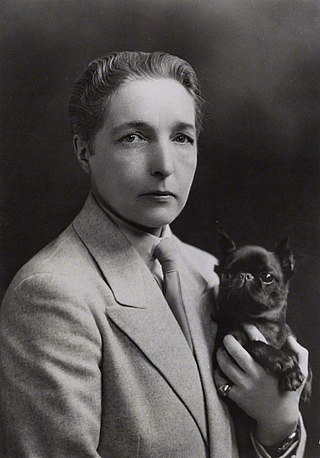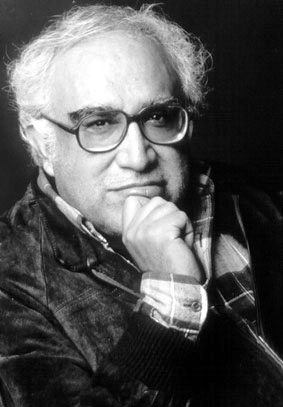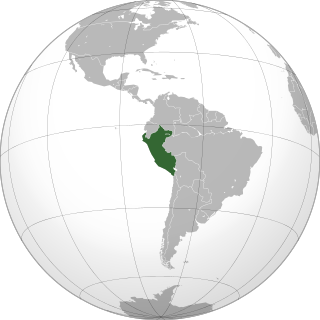Related Research Articles

Marguerite Antonia Radclyffe Hall was an English poet and author, best known for the novel The Well of Loneliness, a groundbreaking work in lesbian literature. In adulthood, Hall often went by the name John, rather than Marguerite.

Carlos Monsiváis Aceves was a Mexican philosopher, writer, critic, political activist, and journalist. He also wrote political opinion columns in leading newspapers within the country's progressive sectors. His generation of writers includes Elena Poniatowska, José Emilio Pacheco, and Carlos Fuentes. Monsiváis won more than 33 awards, including the 1986 Jorge Cuesta Prize, the 1989 Mazatlán Prize, and the 1996 Xavier Villaurrutia Award. Considered a leading intellectual of his time, Monsiváis documented contemporary Mexican themes, values, class struggles, and societal change in his essays, books and opinion pieces. He was a staunch critic of the long-ruling Partido Revolucionario Institucional (PRI), leaned towards the left-wing, and was ubiquitous in disseminating his views on radio and television. As a founding member of "Gatos Olvidados", Monsiváis wanted his and other "forgotten cats" to be provided for beyond his lifetime.

Lesbian, gay, bisexual, transgender and queer (LGBTQ) rights in Mexico expanded in the 21st century, keeping with worldwide legal trends. The intellectual influence of the French Revolution and the brief French occupation of Mexico (1862–67) resulted in the adoption of the Napoleonic Code, which decriminalized same-sex sexual acts in 1871. Laws against public immorality or indecency, however, have been used to prosecute persons who engage in them.

Lesbian literature is a subgenre of literature addressing lesbian themes. It includes poetry, plays, fiction addressing lesbian characters, and non-fiction about lesbian-interest topics. A similar term is sapphic literature, encompassing works that feature love between women that are not necessarily lesbian.

Lesbian, gay, bisexual, and transgender (LGBT) people in Peru face some legal challenges not experienced by other residents. Same-sex sexual activity among consenting adults is legal. However, households headed by same-sex couples are not eligible for the same legal protections available to opposite-sex couples.
The Dance of the Forty-One or the Ball of the Forty-One was a society scandal in early 20th-century Mexico, during the presidency of Porfirio Díaz. The incident revolved around an illegal police raid carried out on 17 November 1901 against a private home on Calle de la Paz in Colonia Tabacalera of Mexico City, the site of a dance attended by a group of men, of whom 19 were dressed in women's clothing.
The study of homosexuality in Mexico can be divided into three separate periods, coinciding with the three main periods of Mexican history: pre-Columbian, colonial, and post-independence, in spite of the fact that the rejection of homosexuality forms a connecting thread that crosses the three periods.
The study of homosexuality and LGBTQ people in Mexico can be divided into three separate periods, coinciding with the three main periods of Mexican history: pre-Columbian, colonial, and post-independence, in spite of the fact that the rejection of LGBTQ identities forms a connecting thread that crosses the three periods.
In Mexican culture, it is now relatively common to see gay characters represented on Mexican sitcoms and soap operas (telenovelas) and being discussed on talk shows. However, representations of male homosexuals vary widely. They often include stereotypical versions of male effeminacy meant to provide comic relief as well as representations meant to increase social awareness and generate greater acceptance of homosexuality. However, efforts to represent lesbians have remained nearly non-existent, which might be related to the more general invisibility of lesbian subcultures in Mexico.

Patricia Eugenia Gutiérrez Salinas is a Mexican actress.

Lesbians in Francoist Spain had to contend with a culture where a fascist state met with a form of conservative Roman Catholicism to impose very rigid, traditional gender roles. In the immediate post-Civil War period, the new regime was not concerned with homosexuals in general, but instead were focused on changing laws to enforce restrictive gender norms like repealing divorce. While original laws banning homosexuality were on the books and enforced using a 1933 law, they were changed in 1954 and 1970. Unlike male homosexuality, lesbians were less clearly addressed by these laws and were much less frequently prosecuted for the crime of homosexuality. Lesbians from that period are hard to identify because they were not identified as such, and often identified as prostitutes instead.
Same-sex marriage is legal in Aguascalientes in accordance with a ruling from the Supreme Court of Justice of the Nation on 2 April 2019 that the state's ban on same-sex marriage violated Articles 1 and 4 of the Constitution of Mexico. The ruling came into effect upon publication in the Official Gazette of the Federation on 16 August 2019, legalizing same-sex marriage in Aguascalientes.
Conchita Gentil Arcos was a Mexican actress of the Golden Age of Mexican cinema as a character actress in supporting roles.

Love of My Loves is a 2014 romantic comedy film directed by Manolo Caro. The film was produced by the Zurita's brothers company Addiction House, and Itaca Films, and it premiered on 4 September 2014 in Mexico. It stars Sandra Echeverría, Juan Pablo Medina, Marimar Vega, Sebastián Zurita and Erick Elías. The film is an adaptation of stage play Un, dos, tres por mí y todos mis amores. The plot revolves around a woman believed to have fallen in love with a stranger who also goes to the altar, so their lives change radically.
Carlos Jáuregui was an Argentine LGBT rights activist. He founded La Comunidad Homosexual Argentina in 1984. In the early 1990s, he set up Gays por los Derechos Civiles and organised the first Pride march in Buenos Aires. He died from an HIV-AIDS-related illness at the age of 38. In memorial, a national day of activism for sexual diversity was established. He was posthumously given the Felipa de Souza Award, and, in 2017, a station was renamed after him on the Buenos Aires Underground.
The Frente de Liberación Homosexual, was the first public organization for gay liberation in Mexico. It was led and cofounded by lesbian activist Nancy Cárdenas in 1971.
Events in the year 1938 in Mexico.

LGBT literature in Mexico began to flourish beginning in the 1960s, but came into its own in the 1980s. However, until then, homosexuality had rarely been addressed in literary works, except as something ridiculous, condemnable, or perverted, thanks to the homophobia that dominates Mexican society. In 1975, the activist and theater director Nancy Cárdenas and the writers Carlos Monsiváis and Luis González de Alba published the first manifesto in defense of homosexuals, published in the magazine ¡Siempre! and, in 1979, they organized the first gay pride march. Although some notable novels preceded it, the novel that marked a true change in direction regarding the scorn and silence around homosexuality was El vampiro de la colonia Roma by Luis Zapata Quiroz, published in 1978. After its publication, many authors had the courage to follow this path and take on the subject of homosexuality without reservations. The 1970s then marked the beginning of a change in perspective in Mexican society with respect to homosexuality thanks to greater recognition and visibility of gay authors.
The unique chronology of the homosexual novel reveals the strong movement of coming out of the closet [...]. It’s evident that the 70s have proven to be a watershed at least in regards to civil life.
Luis González de Alba was a Mexican writer, psychologist, intellectual, and popular science writer.
La estatua de sal is an autobiographical work by Mexican writer Salvador Novo, written around 1945–1946 and published posthumously in 1998. It is an account of personal memories, the author's sexual experiences, and gay life in Mexico City in the 1910s and 1920s.
References
- 1 2 3 4 5 6 7 8 9 10 Cervantes, Erika (2004). "Hacedoras de la Historia: Nancy Cárdenas" . Retrieved 25 May 2012.[ permanent dead link ]
- ↑ Monsivais, Carlos (September 2004). "Nancy Cardenas, La Siempre Inoportuna". Nexos. Archived from the original on 2019-04-28. Retrieved 2019-03-14– via MLA International Bibliography.
- 1 2 3 4 5 6 Gianoulis, Tina. "Cárdenas, Nancy (1934–1994)". Archived from the original on 30 October 2007. Retrieved 25 May 2012.
- 1 2 3 Ávila, Livio (May 29, 2011). "Nancy Cárdenas: La mujer que cambió a México". Archived from the original on 15 August 2015. Retrieved 25 May 2012.
- ↑ Anodis.com (30 March 2004). "Nancy Cárdenas a 10 diez años de su muerte". Archived from the original on 31 October 2005. Retrieved 25 May 2012.
- ↑ "Human Rights and Activism in Latin America". Global Encyclopedia of Lesbian, Gay, Bisexual, Transgender, and Queer (LGBTQ) History. Vol. 2. Charles Scribner's Sons. 2019.
- ↑ Mexico of My Loves, archived from the original on 2017-02-07, retrieved 2019-11-06
- ↑ "Box Turtle Bulletin » Born On This Day, 1934: Nancy Cárdenas". Archived from the original on 2019-11-06. Retrieved 2019-11-06.
- ↑ Eckersley, Mark (2017-07-25). "A Matter of Style: North America – 20th & 21st Century Female Theatre and Drama Practitioners". A Matter of Style. Archived from the original on 2019-11-06. Retrieved 2019-11-06.